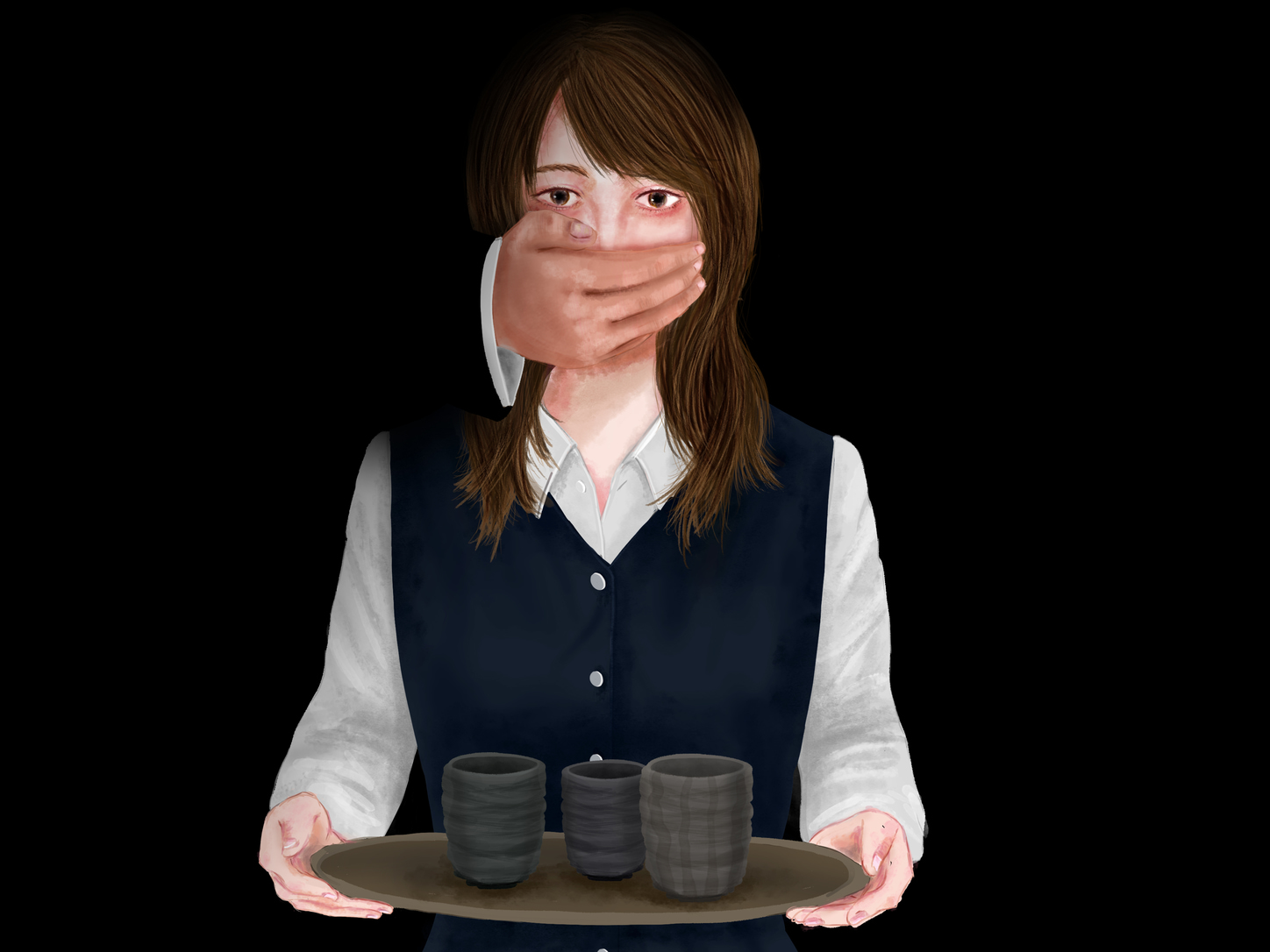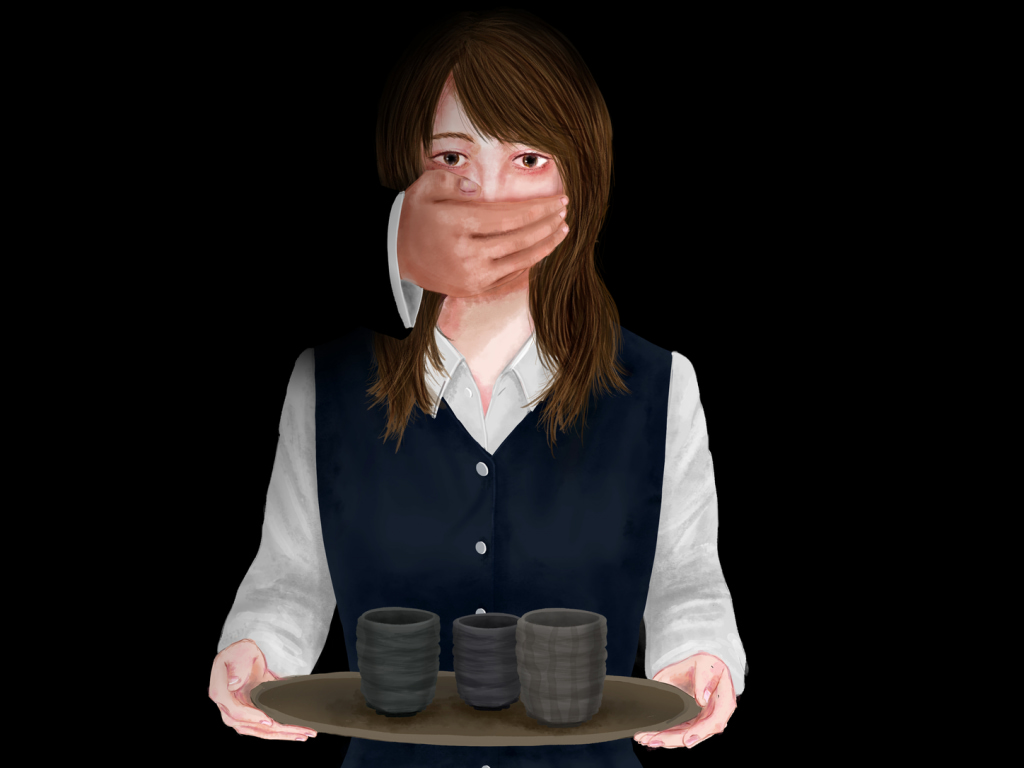In the face of continued sexualization of and discrimination against women in Japan, a few brave individuals are speaking out and demanding change.

When weekly tabloid magazine Spa! ran an article in December 2018 ranking five women’s universities on how easy it was to convince their undergraduates to have sex at parties, Kazuna Yamamoto felt she needed to act. Appalled by what she describes as the constant sexualization and objectification of women in Japan, she responded by launching an online petition at change.org demanding they apologize and retract the piece.
Her ire, she says, was not just directed at the magazine in question, but at the misogynistic attitudes she believes pervade Japanese society in general. “I’d had enough,” Yamamoto tells TW. “That article was the trigger, but I’d previously seen many similar pieces. People go on social media and criticize these things but that’s where it finishes with nothing coming from it. This time I wanted to do something.”
Yamamoto’s petition ended with more than 52,000 signatures and received widespread media attention abroad. This, in turn, led to meetings with politicians as well as Spa!’s editorial team who admitted to “crossing the line” with their content. During the open discussion, they vowed to re-think the way they act as a media. “It was a great opportunity to speak to them,” says Yamamoto. “We heard about why they wrote the article – the magazine felt under pressure to make their presence known in a shrinking market – and who put it all together. Listening to their words, I felt they were sincere in their contrition.”
The International Christian University (ICU) student is positive about the progress that’s been made since the petition was launched. That said, she’s keen to stress that they’ve only just scratched the surface. In January, Yamamoto along with five other young activists started the group Voice Up Japan (VUJ). The organization’s objective is to create an environment in which more people can speak up about a variety of issues often seen as taboo here. Right now, their focus is on sexism and gender inequality.
“We want this to be about more than just raising awareness,” says Yamamoto. “The goal is to find solutions to problems. A great force is released when many people speak out and as a result there’s a bigger possibility of convincing those in power to bring about change. Being a young group ourselves, we can relate more to university students, so they’re currently our main target.”
VUJ is now working on a project to tackle the issue of sexual assault at universities. Due to a fear of speaking up and a lack of faith in the justice system, Yamamoto believes that too many of these crimes go unreported and claims that they’re sometimes covered up to protect the campuses’ reputation.
In 2017, Japan’s archaic sex laws were amended for the first time in 107 years, though many, including Yamamoto, feel the revisions didn’t go far enough. As well as increasing the minimum sentence for rape from three to five years, a new penalty was established for parents or guardians who sexually abuse those in their care. This law, however, only applies if the victim is under the age of 18.
In April, a father in Nagoya with a history of sexually abusing his daughter was found not guilty of “quasi-forcible intercourse.” The man was charged with the crime of twice having non-consensual sex with his then 19-year-old daughter. The prosecutors argued that due to years of abuse she was incapable of resisting his advances. While the court agreed that the actions were non-consensual and that he’d effectively put her under his psychological control, it let the defendant off because there was “reasonable doubt that the victim was in a state of not being able to put up resistance.”
“It’s shocking how they can find loopholes in the law to ‘not convict’ someone who’s done something so disturbing”
“I was honestly disgusted by this,” says Yamamoto with a sigh. “The point of our justice system is to protect victims and people in vulnerable positions. It’s shocking how they can find loopholes in the law to ‘not convict’ someone who’s done something so disturbing.”
One of the main problems, believes Yamamoto, is the fact that consent, when sex is involved, is a concept that’s often misunderstood in Japan. The law states that “violence or intimidation” must be established to determine whether a victim has been raped and this can be difficult to prove.
The situation, Yamamoto says, is exacerbated by a victim-blaming culture in which those that report sexual or violent crimes are often made to feel guilty themselves. A case in point is idol group NGT48’s Maho Yamaguchi who earlier this year was allegedly forced by her group’s management team, AKS, to publicly apologize for “causing a commotion” after she tweeted about being assaulted by two men at her home on December 8, 2018. Yamaguchi, who said sorry to fans at a concert in January, recently confirmed via Twitter that it was a forced apology. If she’d refused, other members of the group would have had to have read a letter out on her behalf which she didn’t want. The revealing message, posted in March, has been retweeted more than 100,000 times.
Social media is now an extremely powerful platform, not just in terms of bringing to light global injustices but also as a force for change. The #MeToo movement has been a prime example of this – though in Japan, #WithYou has made more of an impact. It’s a movement that expresses solidarity with women such as Shiori Ito, who claimed she was raped by a former TBS reporter in 2015. The hashtag gained a lot of traction last April when Junichi Fukuda, a high-level bureaucrat in the finance ministry, resigned from his post following allegations of sexual harassment towards a female journalist with suggestive comments such as “Can I touch your breasts?” Protest marches ensued and Women in Media Network Japan (WiMN) was formed to expose harassment and abuse in the industry.
This year, #KuToo has become one of Twitter’s most prominent hashtags. Combining the Japanese words for shoes (kutsu) and pain (kutsuu) while acknowledging the #MeToo movement, it’s a campaign against employers forcing women to wear high heels that was started by model and actress Yumi Ishikawa.
“I had to wear heels for a part-time job and came home with injuries to my feet. I thought it was just an issue I had but when I tweeted about it many people replied saying they had the same problem”
“I had to wear heels for a part-time job and came home with injuries to my feet,” Ishikawa tells TW. “I thought it was just an issue I had but when I tweeted about it many people replied saying they had the same problem. I realized this was sexual discrimination and decided to launch a petition which will be submitted to the Ministry of Health, Labor and Welfare.”
According to the World Economic Forum (WEF), Japan currently ranks 110 out of 149 countries in terms of gender equality, well behind other G7 nations. Despite the lowly position, Prime Minister Abe is keen to stress the progress that’s been made as a result of his “womenomics” initiative. During a recent WEF address in Switzerland, he highlighted the fact that female labor participation here had hit 67 percent, an all-time high for the country. What he failed to mention is that many of the new female workers are in relatively low paid, part-time jobs.
Viktoriya Shirota, a Russian business mentor for women in Japan, believes companies are sometimes still reluctant to hire females, especially working mothers, due to old-fashioned misgivings regarding their productivity. This fact was shockingly emphasized when, in 2018, Tokyo Medical University admitted it had been purposefully lowering the entrance exam scores of female applicants since 2006 because they felt “female doctors tended to quit the profession when they had children, creating staff shortages at hospitals and clinics.” Through this practice, which has allegedly also been used at other universities, the men in charge attempted to thwart the careers of female applicants before they’d even begun studying.
“Employers prefer a man who’ll work overtime and possibly move from one branch to another,” says Shirota. “Men are stereotypically viewed as the breadwinners while the wife stays at home to take care of their children. Even when the kids grow up it’s difficult for mothers to find full-time employment. In what is an aging society, females also tend to be the caregivers to old relatives. These factors can block women from furthering their careers.”
Shirota, who’s lived in Japan for 18 years, is upbeat about the advances that have been made in terms of gender equality in Japan but, like Yamamoto, feels there’s still much to be done. “There are now more childcare facilities which means more women can work, even if it is usually part-time,” says the entrepreneur. “Local companies are slowly changing their attitudes toward full-time employment for mothers so there are signs of improvement. These are very small steps, though, on what is a very long journey.”
Illustration by Rose Vittayaset
Updated On February 16, 2021








